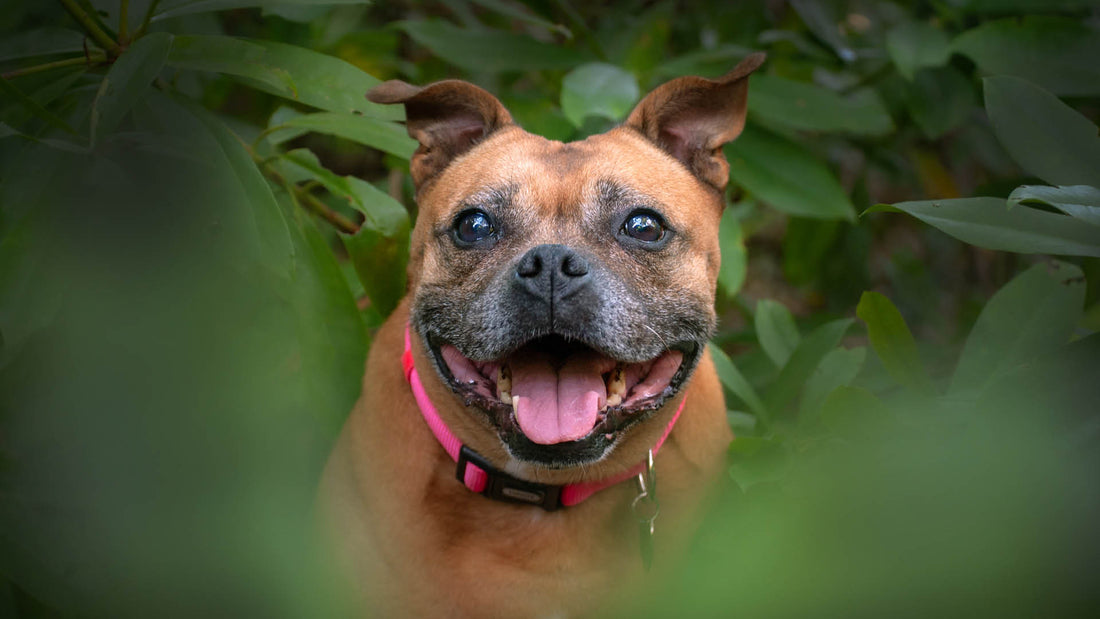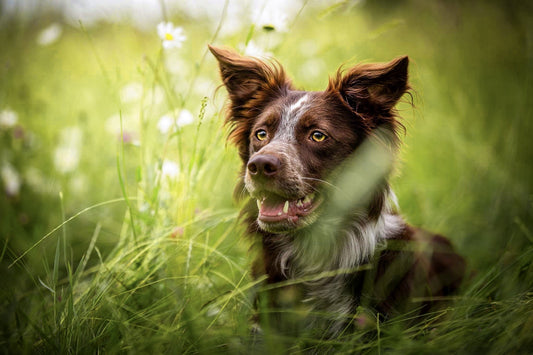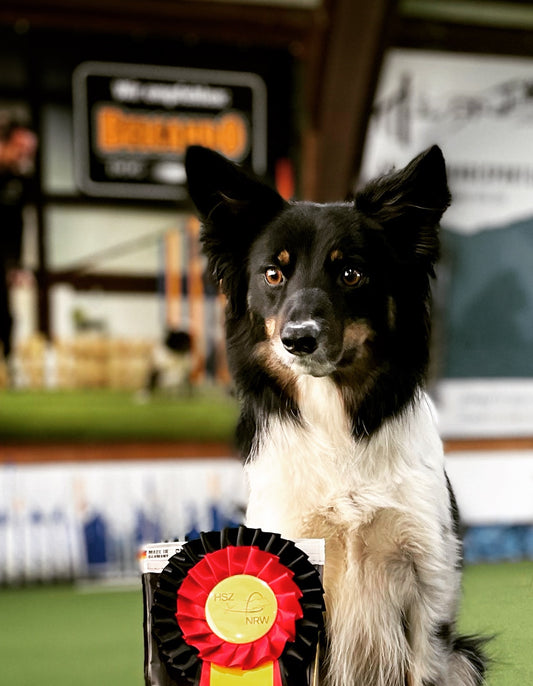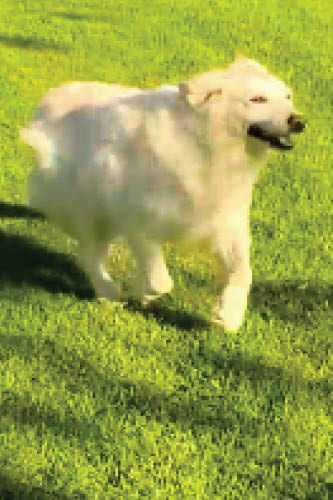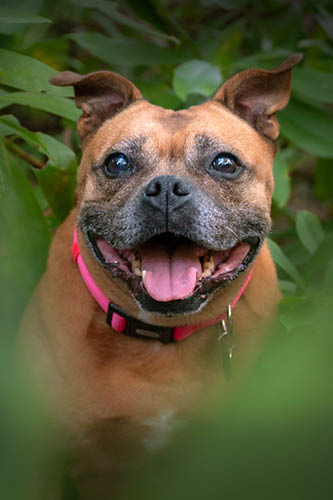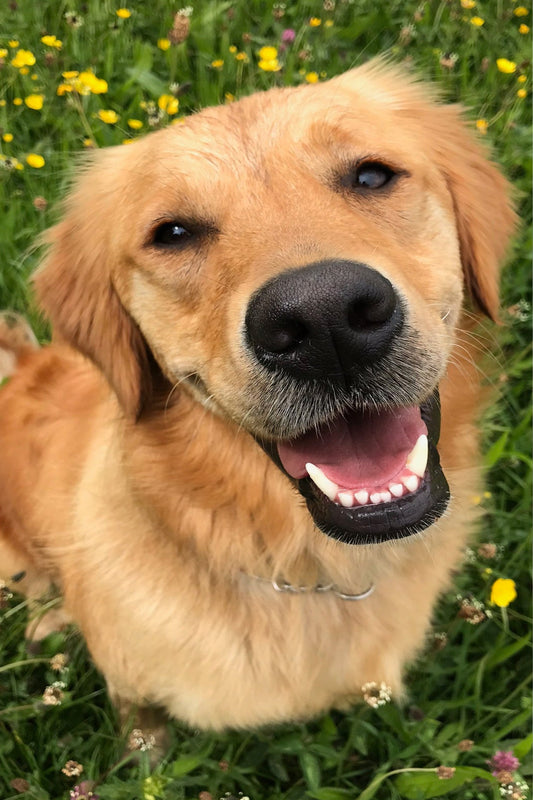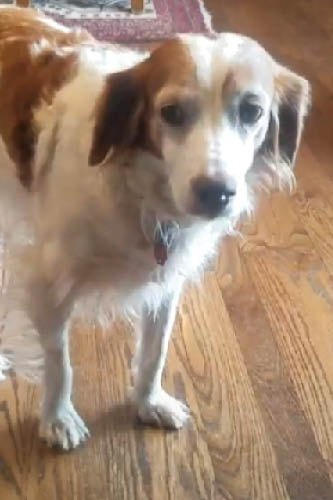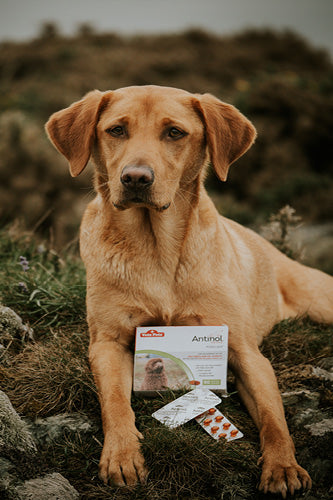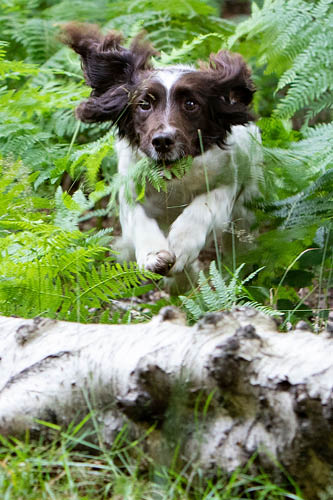It was love at first sight when Anita and her husband saw Honey on the RSCPA website. She was part of a prosecution case and was kept in kennels for a long time.
"I printed out her picture," says Anita, "I looked at it and then put it in the trash, only to find my husband took it out and looked at it. There was just something about her.”

They finally met Honey in early August and knew immediately that she would be part of their family. Six days later she came home.
Before lockdown, Honey went to work with Anita every day.
"We would go for a walk before work, rain or shine, and then always lie down for a bit when I had a break. We could go out for an hour for lunch and then do another lap on the way home.”
Honey was a busy lady, but her favorite place was the beach.
"She loves to hunt seabirds, but she thinks she has wings. She may not be able to swim, but she goes out as far as she can and just wants to play with them. She's a maniac on the beach!”

But Anita noticed that Honey wasn't herself.
"The change in her was gradual, but one day we were at the beach and I noticed that she was limping. We took it easy for a couple of weeks, but then she started holding her hind leg up even when she was just standing and eating her dinner.”
Honey needed help getting up the stairs at night and she couldn't get into the house from the garden on her own.
Anita took Honey to her vet, Rob Davies, at Bromborough Vets4Pets.
"I found him through reviews. He had brilliant references in orthopedics and he explores all alternatives including complementary medicine such as acupuncture. I made an appointment right away and Honey had X-rays done.”
"We were worried she might have a luxated patella, but Rob said that wasn't the case. He showed me her X-ray and there were all these little nodules around the joint. She has it in both hind legs but the one she was holding up was much worse.”
The nodules in Honey's joint are osteophytes, or bone spurs. They are a common occurrence in osteoarthritis. As osteoarthritis progresses, healthy cartilage is lost and mobility begins to deteriorate.


“Antinol® is something like a miracle cure; it certainly worked wonders for Honey. We were so worried about her. We went to the vet in fear. It was awful to see her struggling. She is like my child and I just wanted her to be happy. Now, only with Antinol®, she is full of life.”
“I sit at my desk and look up. She's out in the garden rolling in the grass and having a good time and it just makes me smile. She is herself again.”
Honey is now preparing for some serious squirrel hunting as they embark on their annual trip to Scotland. "I said to my husband, 'I think we're going to have to put her in a kennel this year. She won't be able to keep up with us.” We almost canceled the trip. But now we are not afraid to take them with us. We know she can continue with Antinol®. She will explore and hunt squirrels.”
And what would Anita say to other pet owners who are struggling with their pet's mobility?
"For me, it's like having a child. You love her so much and would do anything to make her happy. Be sure to try Antinol®. The difference with Honey is incredible. Why shouldn't you try it?
Honey is happy, I am happy, Antinol® is brilliant! What more could I ask for?

